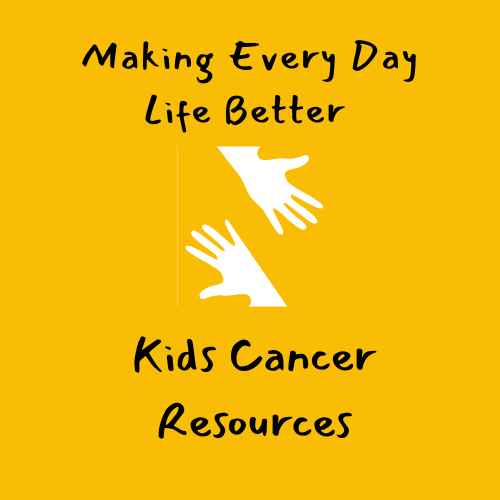Embracing Community: The Power of Finding Your Tribe in Support Childhood Cancer
Facing childhood cancer is an overwhelming journey for families, filled with uncertainty, emotional turmoil, and countless challenges. Yet, amid this storm, one of the most vital sources of strength is finding your tribe — a community that understands, uplifts, and sustains you. Support childhood cancer networks offer families more than just medical insights; they provide emotional refuge, practical guidance, and a sense of belonging during an isolating time. Discovering such a supportive circle can transform the cancer experience, helping families navigate the road ahead with renewed hope and resilience.
Understanding the Importance of Support Childhood Cancer Communities
Support communities for childhood cancer play a critical role beyond clinical care. They connect families facing similar battles, fostering empathy and shared strength.
Why Connection Matters During Childhood Cancer
The emotional strain of a child’s cancer diagnosis can be isolating. Parents often feel overwhelmed by medical jargon, treatment side effects, and altered family dynamics.
– Empathy from peers reduces feelings of isolation and despair.
– Sharing experiences aids in emotional processing and coping.
– Community members often provide practical tips on treatment management, hospital stays, and navigating healthcare systems.
– Emotional validation helps build confidence in decision-making and parenting through cancer.
Statistics Highlighting Support Benefits
Research shows that families involved in support networks report:
– Reduced anxiety and depression symptoms.
– Improved quality of life and family functioning.
– Enhanced ability to manage the caregiving load.
By integrating support childhood cancer groups into treatment, families have a more holistic approach to healing.
Where to Find Your Tribe: Types of Support Childhood Cancer Networks
There are diverse ways to connect with others touching the childhood cancer journey, which can be tailored to different preferences and needs.
In-Person Support Groups
Many hospitals and cancer centers host regular group meetings for parents, siblings, and even pediatric patients. These provide face-to-face interaction to share stories and emotions.
– Advantages: Direct human contact, immediate emotional support, shared experiences within local context.
– How to find: Ask your treatment center or pediatric oncology team, or check local nonprofit organizations specializing in childhood cancer.
Online Communities and Forums
Digital platforms eliminate geographic barriers, allowing families worldwide to connect anytime.
– Popular forums: Cancer Support Community, My Childhood Cancer, and Facebook groups focused on childhood cancer.
– Pros: Accessibility 24/7, anonymity options, diverse perspectives.
– Tips: Choose moderated groups to ensure safe, respectful dialogue.
Specialized Social Media Networks
Platforms like Instagram, Twitter, and TikTok offer hashtags such as #SupportChildhoodCancer or #ChildhoodCancerWarrior, enabling families to share their stories and find allies.
– Benefits: Visual storytelling can be therapeutic, create awareness, and foster broader connections.
– Caution: Balance screen time and verify the accuracy of shared information.
How to Build Meaningful Connections Within Your Support Childhood Cancer Tribe
Joining a community is just the first step; nurturing authentic relationships is key to reaping the full benefits.
Be Open and Vulnerable
Authenticity invites empathy and trust.
– Share your story honestly, including fears and hopes.
– Listen actively to others’ experiences, creating mutual respect.
Engage Consistently
Relationships grow through regular interaction.
– Participate in scheduled meetings or group chats.
– Celebrate milestones and offer support during setbacks.
Exchange Practical Advice
Information sharing empowers and eases the caregiving journey.
– Discuss coping strategies for side effects or hospital logistics.
– Share resources on financial assistance, educational rights, or mental health support.
Recognizing and Managing Emotional Challenges in Support Childhood Cancer Relationships
While community support is invaluable, navigating emotional dynamics requires sensitivity.
Setting Boundaries and Self-Care
It’s essential to balance giving and receiving support without burnout.
– Know your limits for engagement, especially online.
– Prioritize personal mental health and seek professional help if needed.
Dealing with Grief and Loss within the Community
Sadly, some families face outcomes of loss, which can impact the entire group.
– Honor grieving processes individually and collectively.
– Participate in memorial events or remembrance activities to foster healing.
Additional Resources and Professional Support Options
Communities complement but don’t replace professional guidance.
– Pediatric oncology social workers can provide tailored emotional support and resources.
– Counseling services for both children and parents can be accessed through hospitals or charities.
– Organizations like the American Childhood Cancer Organization (https://www.acco.org) offer extensive educational materials and connections to support networks.
Bringing It All Together: The Lifeline of Support Childhood Cancer Networks
Finding your tribe when facing childhood cancer means tapping into a rich reservoir of collective wisdom, empathy, and hope. Whether through in-person meetings, engaging online platforms, or professional resources, connecting with others walking a similar path helps lighten the emotional load and fosters resilience. Remember that these relationships flourish best when met with openness, consistency, and care.
If you or a loved one is navigating childhood cancer, don’t hesitate to reach out and join a support childhood cancer community. Having a network by your side transforms uncertainty into shared strength and isolation into belonging.
Take the first step today—connect with compassionate networks or professional helpers who can guide you. For personalized support or to learn more about available resources, feel free to contact khmuhtadin.com and find the tribe that will walk alongside your family throughout this journey.




